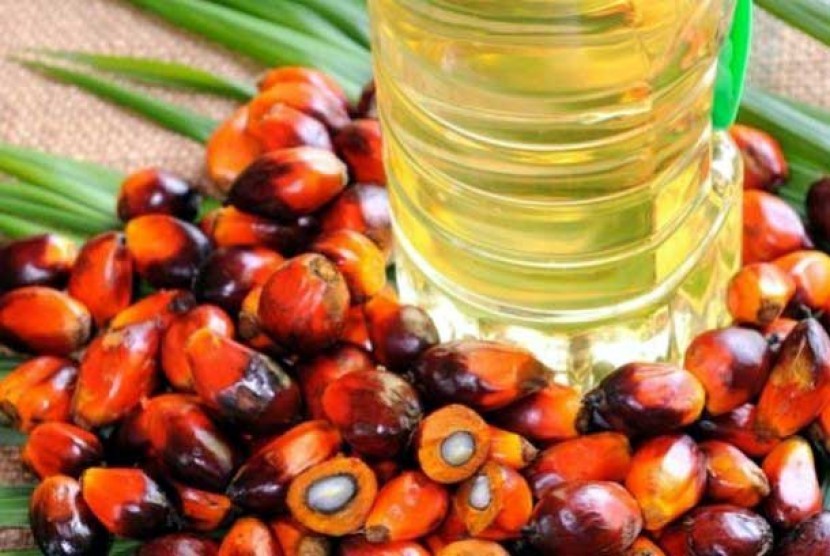REPUBLIKA.CO.ID, JAKARTA -- Indonesia's delegation actively promoted palm oil to Swiss businesses at the Indonesia Business Forum on Sustainable Palm Oil in Global Market in Zurich on September 28, Indonesian Embassy in Bern informed Antara here, Friday.
The delegation comprised representatives from the Ministry of Commerce, Ministry of Foreign Affairs, Council of Palm Oil Producing Countries (CPOPC), Indonesian Association of Biofuel Producers (APROBI), Indonesian Vegetable Oil Industry Association, Indonesian Association of Petroleum Industry (AIMMI), and Indonesian Palm Oil Entrepreneurs Association.
The Indonesian delegation highlighted the advantages of using palm oil as well as tendered clarifications on negative reviews on the commodity in the presence of some 50 prominent members of the Swiss Asian Chamber of Commerce (SACC), such as Migros-Genossenschafts-Bund, Syngenta Crop Protection AG, Nutriswiss AG, and the Association of Swiss Chocolate Manufacturers.
"Palm oil is a blessing from God for tropical countries, as it grows only some 10 degrees north or south of the equator," Executive Director of CPOPC Mahendra Siregar pointed out.
Indonesia controls some 55 percent of the world's palm oil production, much higher than Malaysia's share of only 29 percent, he added.
According to Siregar, palm produces four to 10 times more oil per hectare as compared to other vegetables oil commodities, such as rapeseed oil and sunflower oil, which are typical European commodities.
In several European countries, palm oil is rejected by some organizations due to deforestation, ecosystem destruction, corruption, and human rights abuse.
Director General of International Trade at the Ministry of Commerce Oke Nurwan, who is also a speaker at the Indonesia Business Forum, said that in order to boost competitiveness and to respond to global trade challenges, the government of Indonesia had introduced the Indonesian Sustainable Palm Oil certification scheme since 2011 by involving representatives from the government, non-governmental organizations, academics, and businesses.
Paulus Tjakrawan from APROBI explained that as compared to other vegetable oil products, those made of palm oil had obtained the maximum number of certifications, such as from the CSPO, International Sustainability & Carbon Certification, Indonesia Sustainable Palm Oil, and Malaysian Sustainable Palm Oil.
Harry Hanawi from AIMMI said results of a health review indicated that palm oil was proven to have higher levels of vitamin A and E as compared to other vegetables oils but has lower cholesterol.
"In other words, a negative charge against palm is merely a business competition strategy applied by competitor countries," Hanawi asserted.
Barbara Möckli-Schneider from SACC said she had obtained comprehensive information regarding palm, which has been viewed negatively in Switzerland.
Although Switzerland is not a member of the European Union (EU), but the EU policy has a considerable effect on the country's policy, as it is Switzerland's main trading partner.
In addition, the total ban on the use of palm oil biofuel by Norway in June 2017 is feared to affect Switzerland, as the country along with Norway, Iceland, and Liechtenstein are members of the European Free Trade Association that operate in parallel with the EU and also engage in the European single market.
Meanwhile, Indonesian Ambassador to Switzerland Linggawaty Hakim said despite being in Europe, Switzerland has adopted a positive approach to palm oil commodities, especially from Indonesia.
Instead of boycotting palm oil as what has been done in Norway, the ambassador said, Switzerland has actively provided development assistance and coaching for the sustainable production of palm oil in Indonesia.
The Indonesia Business Forum in Zurich aims to break down non-tariff barriers and discrimination against palm oil.
It is expected that the event would serve as a platform to establish networking and closer relations between Indonesian palm businesses and Swiss business circles.
In addition, it can provide a deeper understanding on palm and boost Indonesian palm oil exports to Switzerland.



